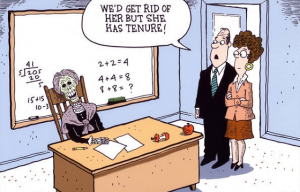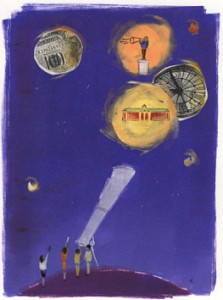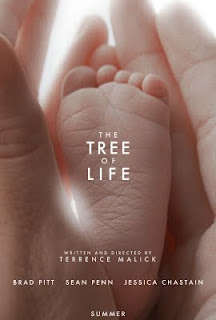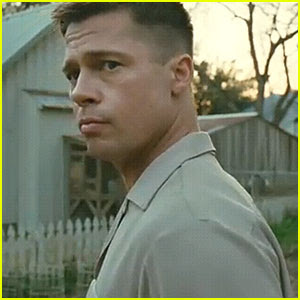
Donald J. Trump is slated to appear on CNN on Wednesday night for what is being billed as a town hall. This raises a host of journalistic questions that I suspect will persist throughout the campaign. Already, folks are weighing in on the propriety of CNN granting this showcase.
As Kyle Pope of Columbia Journalism Review asks, for instance: “Do you give Donald Trump airtime or ignore him? Fact-check him in real time or let him discredit himself? Pick apart his most noxious ideas or hope they go away?”
So, let me join the parade with a few matters media outlets – and viewers — need to consider. First, of course, is whether the man is newsworthy. That’s an easy one – he’s currently the frontrunner in GOP circles in the race for the presidency and, like it or not, he did occupy that office. By definition, he’s newsworthy and many viewers – perhaps especially those who shun CNN – would want to see him.
This is different, of course, from the 2016 campaign – at least in its early stages. Back then, he had clown appeal and few, probably including many in his inner circle, thought his efforts were anything but a PR stunt. He offered comic relief. Now, he needs to be taken seriously.
The question then becomes: if he is to be taken seriously, how is he best dealt with? He is almost certain to lie, perhaps about the election results and certainly about the various legal problems piling up for him. One technique, of course, would be to call on various pundits who could disembowel him with facts.

But Trump is so shameless and effective at bluster – a master salesman who at least appears to believe his own pabulum — that he won’t respond the way a normal candidate would. A normal candidate would be set back on his heels by the truth. But he’ll barrel on through, keeping the limelight focused on his untruths as if they were real (likely to the applause of his supporters, who want nothing to do with a normal candidate).
Indeed, the problem raised by CNN allowing disinformation on the air was suggested in a CNBC piece. The author, Alex Sherman, referred to a promise that CNN chief Chris Licht made last year when he took over the outlet, a pledge to avoid putting on anyone who engaged in disinformation.
“The analogy I love to use is some people like rain, some people don’t like rain. We should give space to that. But we will not have someone who comes on and says it’s not raining,” Licht said in an October interview with CNBC.
He was referring to election denier nonsense, in particular, there.
But, as Sherman suggested, Licht appears to be backtracking. “This seems to be a case of Licht bending his own rules,” he wrote. “Clearly, CNN has different standards for Trump than it does spokespeople for Trump that cycle through cable news networks as daily guests.”
Still, CNN does want to treat this appearance in serious journalistic fashion. That will mean fact-checking of some sort, as CNN officials have acknowledged.
“We obviously can’t control what Donald Trump says—that’s up to him,” CNN Political Director David Chalian told Vanity Fair. “What we can do is prod, ask questions, follow up, and try to get as revealing answers as possible.”
That certainly sounds reasonable. The problem, of course, is what is reasonable in dealing with Donald Trump?
The sad fact is that in modern times we’ve never had a president like Trump or a candidate like him, either. In recent memory, extramarital shenanigans – or something as benign as tears — would disqualify a contender. Now, even an indictment (much less two impeachment proceedings) is insufficient. How low have we sunk?

So, let me make a modest proposal. On one of the innumerable TV talent competitions, whenever a judge finds someone unacceptable, he or she hits a button that puts a big red X on the screen. If a majority of the judges hits such buttons, the auditioner is bounced.
What if CNN did something like this with Trump? Each time he lies, a big red X and a loud buzzer could sound. As soon as he hit, say, six red Xs, he’d be escorted off the stage to the tune of the Beatles “Nowhere Man.”
The host would explain the rules in advance – perhaps in an effort to confine Trump to true statements. And after each lie, the host would explain the truth.
The only problem with this approach would likely be that Trump’s appearance would be short and CNN would then need to find a way to fill the airtime. Perhaps the network could then put on a credible candidate, from either party. Almost certainly, that would better serve the public than this town hall is likely to.






